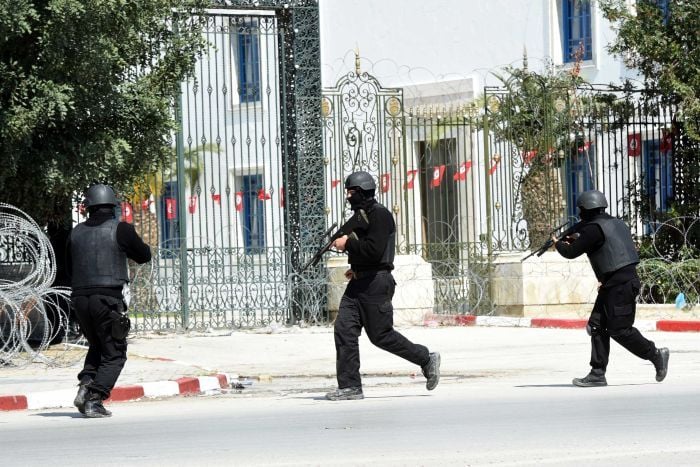
Gunmen attacked the National Bardo Museum in Tunis this afternoon, leaving 25 people dead, including 20 foreigners, three Tunisians, and two of the gunmen, reports the New York Times.
The attackers, dressed in military uniforms, fired shots outside the museum around 12:30 PM before entering the building and continuing their assault. Government security forces soon responded to what had developed into a hostage situation and retook the museum, freeing more than 100 European tourists still inside the institution. Some of the museum-goers are believed to have been among the 3,161 passengers from the Costa Fascinosa cruise ship that docked in Tunis today.
Though reports vary, almost 50 people are believed to be injured, and one of the museum’s guards and a cleaning woman are among the dead. Officials believe the attack may have been meant for the nearby National Parliament building, which was quickly evacuated. A third gunman may still be at large.
This past May, a lone gunman attacked the Brussels Jewish Museum, killing four. Mehdi Nemmouche, a French convict who converted to Islam while in jail and later traveled to Syria to fight with jihadists, was later arrested and charged with the attack. The museum reopened in September.
During 2011’s Arab Spring, Tunisia led the charge against autocratic rule in the region. In the years since, an effective democracy has been established, with recent presidential and parliamentary elections running smoothly. Nevertheless, ISIS has been heavily recruiting in Tunisia and issued a video in December in which three Tunisian ISIS members threatened violence against their native country “as long as Tunisia is not governed by Islam.”
In a statement, Tunisian prime minister Habib Essid called the attack a defining moment for the country. “Many are taking opportunities to undermine our homeland. We will act relentlessly, without mercy,” he promised. The country’s tourism minister, Selma Elluni Rekiki, had assured tourists yesterday that there were no terrorist links in the country, and that visitors would be safe.
A Ulysses mosaic (detail) at the Bardo Museum, Tunis.
Photo: Dennis Jarvis, via Wikimedia Commons.
The Bardo Museum, which is known for its collection of Roman mosaics, is housed in a 19th-century palace and is among the country’s leading cultural destinations.
“This is a black day for Tunisia,” Karim Ben Sa’a, a tourism industry manager, told the Guardian. “We are very sad for these tourists. They visit our country and it is so, so, sad to see them die. Our hearts are black.”